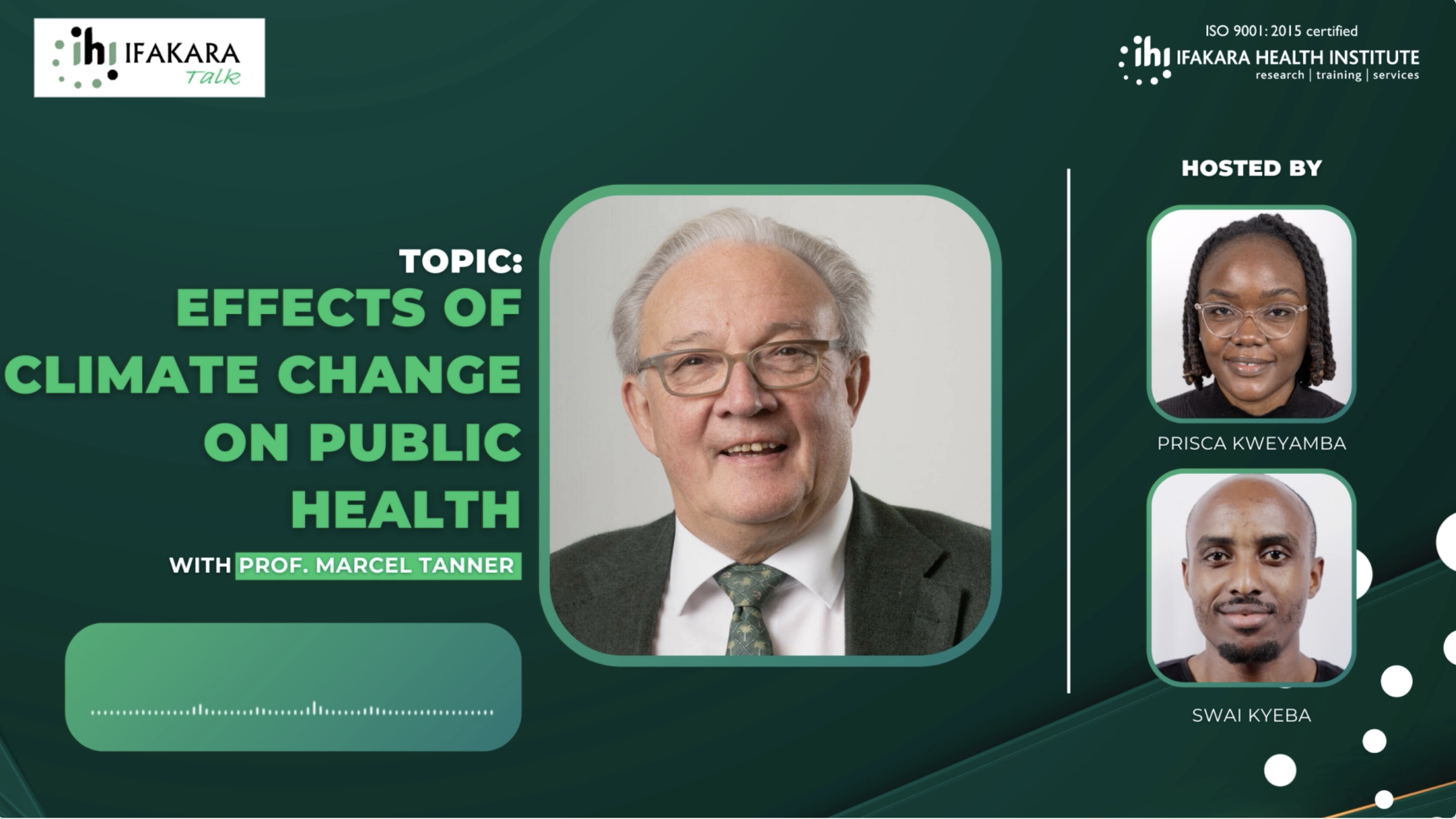
INSIGHTS: Talk on effects of climate change on public health with Prof. Marcel Tanner

In a talk livestreamed on Monday morning, distinguished Swiss medical biologist Professor Marcel Tanner engaged in a conversation with Ifakara Health Institute’s research scientists, Prisca Kweyamba and Swai Kyeba to delve into the topic "Climate Change Effects on Public Health."
In the one-hour discussion, Prof. Tanner emphasized the importance of adopting a comprehensive and collaborative approach that considers societal, cultural, and ecological issues, for more sustainable solutions.
The conversation, hosted at Ifakara’s multimedia studio in Bagamoyo, Tanzania at 11 am EAT, commenced by highlighting the importance of “purpose-oriented research.” Prof. Marcel urged scientists to pose precise questions contributing to a deeper understanding of the causality of climate change.
He expressed concern that, over four decades in the field, many scientists have become less adept at formulating robust research questions, potentially impeding progress in understanding and addressing the impacts of climate change.
Migration and the spread of disease
The dialogue delved into the challenges posed by climate-induced migration and its transformative impact on societies. Prof. Marcel stressed, “Migration is a problem. We must also maintain our national identity. When people start moving, they bring diseases into areas where certain diseases were not yet present.”
He emphasized that migration not only introduces infectious diseases but also contributes to the spread of non-communicable diseases due to lifestyle changes resulting from intercultural interactions.
Climate change and malaria
The discussion delved into the specific example of malaria and its complex relationship with climate change. Prof. Marcel acknowledged the progress made in malaria control in Tanzania and other countries in controlling the disease. However, he also noted new challenges arising due to climate change.
“We had a very good time in the last 20 years. We are now stagnant. Two issues. One is new phenomenons, new breeding sites, with these heavy rains and El Nino going up to January and maybe it goes up to the rainy season in March, look at the breeding sites that can be created.” said Prof. Marcel.
The need for robust surveillance systems, capable of monitoring both the “appearance and disappearance of diseases”, was stressed as a crucial element in responding effectively to evolving health challenges. The Global Technical Strategy for Malaria in 2015 served as a reference.
Examining the link between climate change and mental health
What is the relationship between climate change and mental health? The interviewee highlighted the longstanding issue of mental health being overlooked in many regions, particularly in low and middle-income countries.
The societal and lifestyle changes brought about by climate change, coupled with the lack of access to mental healthcare, contribute to a growing mental health crisis.
“And I would like to point out that Tanzania has something very innovative for the world on this issue being done by the Fondation Botnar. We support this project called “Healthy Cities”...in Tanga, which is called Tanga Yetu, and this particularly aims at mental health interventions for young people.”
The crucial need for climate-resilient health systems
Prof. Marcel underscored the urgency of proactive measures to "make health systems climate-resilient. "Reflecting on his lead facilitation of a 9-day teaching course in Bagamoyo on Health Planning, he stressed the importance of thinking systematically and evolving health systems to meet changing needs.
"We can't wait; action is needed now,” he emphasized.
Reflecting on a 9-day teaching course in Bagamoyo on Health Planning where he is the lead facilitator, he highlights the key is to think systematically, not just focusing on diseases.
He said, “The first step is to view the health system as a whole, not compartmentalized…we must consider how climate change alters service utilization. Old standards, like a dispensary for 10,000 people, health centers for 50,000 may no longer be valid. It's time to start, adapt, and think beyond traditional norms. The system must evolve to meet the changing needs.”
He added, "One of the key implementations of research is not just to count people who go to a health system, but how they feel about their health system… You must actually study the non-users of your system" he added.
In conclusion, the discussion advocated for a proactive and holistic approach in addressing the many impacts of climate change on public health. As the world grapples with a changing climate, the call to action is clear: collaborate, innovate, and build resilient health systems capable of addressing the dynamic and interconnected challenges posed by climate change.
Listen to the discussion
If you missed the talk don't worry – the recording is now available for listening on our Youtube Channel and X Spaces!
Learn more about IFAKARA Talks here.
